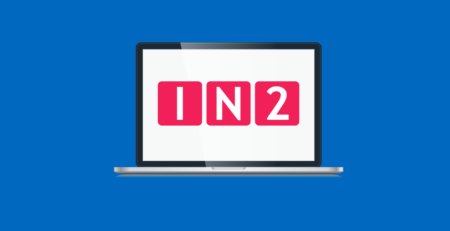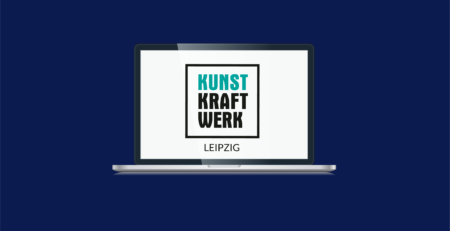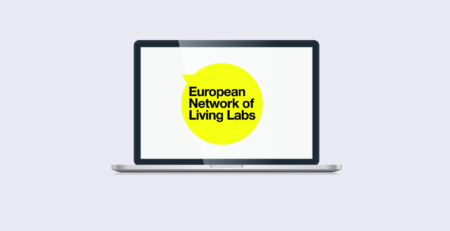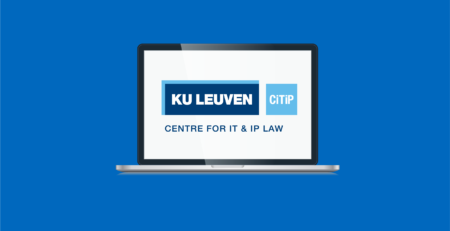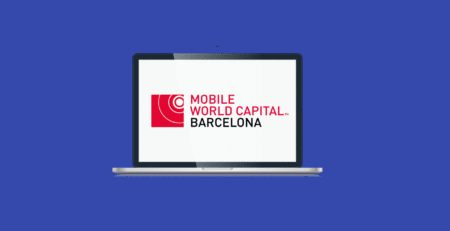Meet our partners: Eurecat
Patricia Castillo is the Möbius Project Coordinator. She is an EU funding expert and R&D innovation manager in cultural and creative industries.
Eurecat is a private, not-for-profit research and technology centre, the second-largest in Spain. Our mission is to contribute to business competitiveness and address social challenges by developing new knowledge and technologies, providing high added value innovation services, and delivering specialised training.
Eurecat was founded in 2015 after the merger process of five of the largest technology centres in Catalonia, and we have kept growing since. As a result, Eurecat is an interdisciplinary centre covering a wide range of knowledge areas -from advanced materials to audiovisual technologies; from biotechnology to applied artificial intelligence and robotics; from environmental sciences to manufacturing and industrial processes.
Ours is a story of cross-innovation. We take pride in the learning process that leads us to find value in the intersections between disciplines, productive sectors, stakeholders, and ecosystem needs. We like to endow this spirit in all our avenues: scientific progress and innovation are creative processes, and creativity is powered by diversity. We, therefore, work closely together with different agents in our innovation ecosystem to find the best solutions for increasing industrial competitiveness in balance with social acceptability and environmental responsibility.
What do you think about the state of the publishing sector nowadays and the feedback from the consumers that it is receiving? Thus, how do you think the upcoming innovations, such as Möbius, could be integrated in this field?
In September 2019, we started working on the initial ideas that then became Möbius. Back then, a pandemic hitting the global economy and way of life was mere science fiction. Yet, there were already open discussions of the publishing sector’s crisis, pressure for gaining new audiences, rethinking business models, etc. This is a shared challenge for the cultural and creative sectors and industries (CCSI): in the ‘attention economy,’ all content and experience creators compete for the spare time of audiences. In the meantime, audiences have innumerable options, literally, at hand through their mobile devices or TV remote.
Additionally, the publishing sector has its challenges regarding the digital and green transition. Let’s not forget this is a sector built upon a paper-based cultural good ideated five centuries ago. Möbius goal is to reinvigorate and remodel the publishing value chain to become resilient to the new circumstances. We will deliver at once innovations for different parts of the value chain: new tools to engage and understand their audiences, new processes that facilitate user-driven innovations, and new business models incorporating all value contributors fairly and sustainably.
Eurecat is proudly coordinating Möbius, and we are providing most of the core technology developments: the 3D audio and the data analyses based on computational social sciences approach.
Can you tell us about the immersive audio technology you’re planning on developing during the Möbius project?
Back in 2008, ‘Barcelona Media’ -one of the centres later merged into Eurecat- was a pioneer in developing 3D audio technologies. These technologies allow for audiences to feel part of a virtual ambience by means of spatialised audio effects.
Eurecat continued this lead and further developed the concept and tools for making 3D and immersive audio accessible to everyone, especially for content creators. The goal is mainstreaming 3D and immersive audio production technologies so that we can eventually see a boom of immersive content. We have tested these technologies in several use cases, including museum audio guides and experiences, virtual reality games, music composition, and live music performances.
In Möbius, we plan to extend our proprietary tools to address the specific needs of the publishing sector, building on the audiobook production workflows. There is a line in our project’s technical Annex that that literally says: “[…] since books typically transport readers into different time periods or locations, and their imagination fills in the gaps fuelled by the descriptions created by the authors. Then why even bother to think of interactive or immersive book experiences?”. Well, because it is possible; in the same spirit of e-books and audiobooks currently do and have made it possible for readers to experience books in different ways (even while driving!), we want to explore further possibilities…. And we have planned a two-year long co-creation process with relevant stakeholders (including authors, prosumers, readers, and publishing professionals) to help us guide these developments.
Möbius wants to leverage the power of prosumers, can you define what a prosumer is?
The term prosumer was coined in 1980 by futurologist Alvin Toffler, when he predicted that the role of producers and consumers will eventually merge. Three decades after, we are fond of Monica Izvercian’s definition of prosumer as an usual consumer that is “eager to engage, malleable to be transformed and creative enough to produce valuable outcomes”. Importantly, according to this definition, a prosumer is an empowered individual, aware of the potential value of their work. This provides a framework for us to research and perhaps build a different understanding of prosumers in the publishing value chain, not just for content creation (e.g., fanfic enthusiasts, authors) but also for co-designing services and products (e.g, beta-testers, early-adopters).
We cannot stress enough the urgency of this conversation. The CCSI needs to critically revisit their understanding of audiences and customers, because readers and book buyers, are no longer voiceless, passive subjects. We have been empowered to create and publish works of our own even just for the fun of it, and we are loving it. Look at the Internet: communities of amateur writers, crowdsourced publishers, and self-publishing services are thriving.
In this scenario, we want to raise the stakes by exploring concrete solutions for the publishing sector and the prosumers to meet at eye level and collaborate in a transparent, fair, and productive way.
What can you explain to us about the prosumer’s intelligence toolkit?
We will create a novel Prosumers Intelligence Toolkit that grasps the full scale of global reader’s base. There are several online communities of amateur writers and fanfic enthusiasts actively connecting and writing around own works or published works. These communities are so prolific that they allow for a Big Data approach to analyse interactions, engagement, collaborative creation, discussions, and controversies, etc. We are investigating the socio-technical phenomena that occur in these online communities as a window to better understand readers.
It is important to clearly state that we will not extract data to later target them as consumers; nor we will generate contents from their works. We are looking at alternative approaches to the conventional consumer research that focuses on ‘who is buying what’. Our intention is to ‘learn’ from these communities -from their interactions and collaborative dynamics- and develop new sets of metrics that would allow publishers to understand how and why readers are relating to books, their characters, and storylines. We believe this will open a wide range of business opportunities for all value contributors in the sector; this would be impossible to fathom without the amazing work of online communities of writers and fanfic enthusiasts.
And of course, you are leading the Work package 4 which develops the Möbius Book, what are the main challenges you have identified for it?
In Möbius we are taking the e-book back to the design table. We are rethinking the concept of digital book and audiobooks so that they enable different experiences for the user. The Möbius Book will demonstrate two things: that interactive and immersive book experiences are possible, and that new products can be efficiently developed with the contribution of its future users.
As for any new media format, there are challenges related to quality of experience. Cinematic language has been developing over a century, and audiences have grown accustomed to certain effects, ellipses, camera movements, etc. Some new forms of storytelling still need to fine-tune their languages and the narrative affordances for users to enjoy the experience comfortably.
Möbius co-creation activities with users will therefore investigate comfort issues. It will also explore the suitability of particular effects and narrative resources to convey the stories compellingly. At the same time, it will involve these users in decisions that affect the acceptability of the Möbius book as a product. The promise of co-creation with users is a reduced risk of a failing innovation. In Möbius, we adopt Living Labs approaches to ensure users have been involved in the design and development loop since the start.
During the last years, the publishing sector has been living its revolution with the digitalisation of society and the introduction in the E-books market, and then different kinds of platforms that put the reader in the centre of the book creation. Still, the publishers have difficulties finding the suitable business model to adapt themselves to those changes. What Möbius will bring into this new paradigm?
The publishing sector -and all cultural and creative industries – are value networks trading with creative works as assets. Nowadays, there are virtually no obstacles to publishing and sharing own works. This has made the system shake.
We are aware we are navigating uncomfortable grounds. There are still many blind spots and controversies surrounding the prosumer conversation: from IP proper enforcement to value recognition and fair remuneration to the hovering suspicion of yet-another-data-tool that will exploit Internet users’ data for business purposes. But resisting to acknowledge that there is a paradigm change regarding audiences and creative work consumers is futile, as there is no way around it.
So, we tasked ourselves with the job of illuminating these uncomfortable grounds. Möbius is approaching the challenge in good faith and will rely on scholarly expertise to put forward any possibility of creating fair business opportunities between all stakeholders, including the prosumers.
Finally, it would be much appreciated to know what you expect to achieve by the end of the Möbius project.
Naturally, we would love our results to be widely adopted by the publishing sector. But apart from that, I would love Möbius to be remembered as an original and pioneering project that shed light on complex topics to unleash new business opportunities for the European CCSI.
Patricia Castillo, Möbius Project Coordinator
I am a lucky gal. I do what I love for a living.
I am honored to lead a great team of motivated, visionary and enthusiastic European program managers.
I am grateful for the privilege of working with highly qualified teams of international experts and scientists, regulators and policy-makers, business partners, and civic organizations.
I am passionate about technologies that improve people’s life and address societal challenges.
I keep it all connected with principles of digital and media literacy, training, participatory design, and social innovation. That is how it all contributes to a greater goal: a next generation of citizens and aware of their power to create change.
…and it all happens in Barcelona.




